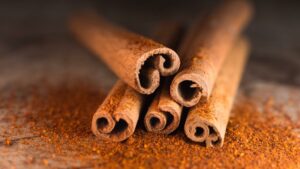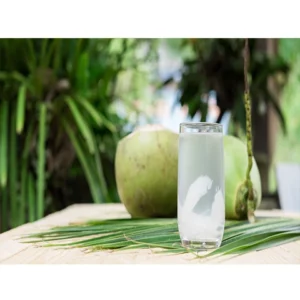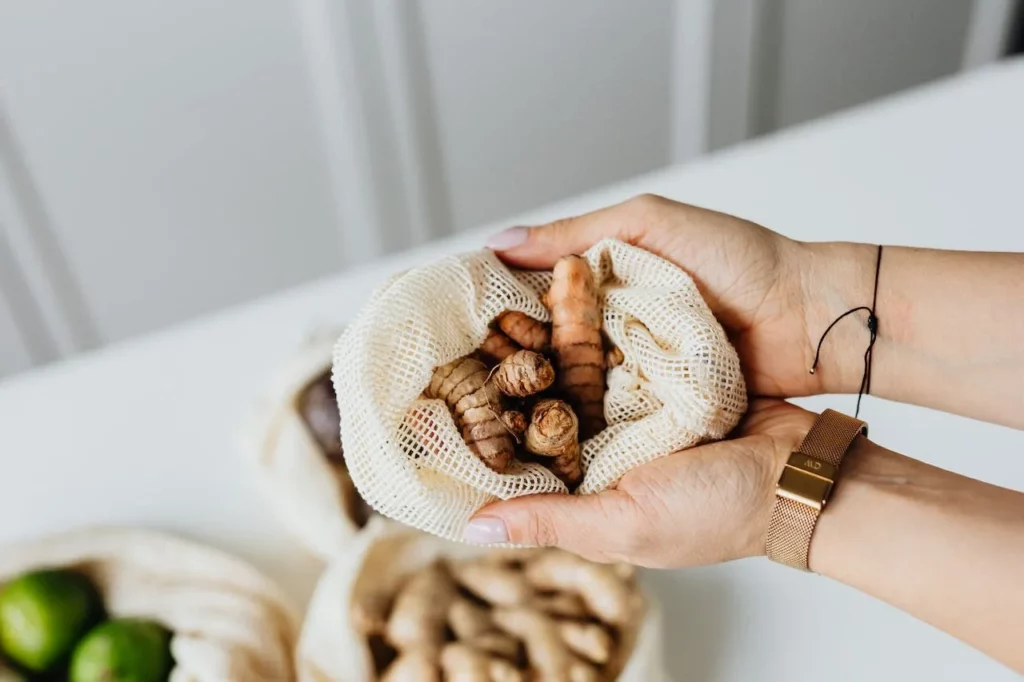Diabetes, a chronic condition affecting millions worldwide, poses significant health challenges and necessitates lifelong management. In recent years, there has been a growing interest in natural remedies and holistic approaches to health, with herbs playing a pivotal role in this paradigm shift. This blog aims to explore the potential of herbal cure for diabetes management, understand their benefits, and how they can complement traditional medical treatments.
Contents
What Are The Benefits Of Herbal Cure For Diabetes?
 Herbal remedies for diabetes have gained popularity due to their potential benefits and holistic approach to health. Here are some of the key benefits of using herbal remedies for diabetes:
Herbal remedies for diabetes have gained popularity due to their potential benefits and holistic approach to health. Here are some of the key benefits of using herbal remedies for diabetes:
- Natural Blood Sugar Regulation
Certain herbs have been found to help in regulating blood sugar levels. For instance, fenugreek, cinnamon, and bitter melon have properties that can aid in improving insulin sensitivity and lowering blood glucose levels.
- Reduced Risk of Side Effects
Compared to some pharmaceutical drugs, herbal remedies often have fewer and less severe side effects. This is particularly beneficial for individuals who may be sensitive to certain medications or those looking for a more natural approach.
- Complementary to Conventional Treatments
Herbal remedies can be used alongside traditional diabetes medications to enhance treatment efficacy. However, it’s crucial to do this under medical supervision to avoid potential interactions.
- Antioxidant Properties
Many herbs have antioxidant properties that can help reduce oxidative stress, which is linked to the complications of diabetes. Antioxidants can help protect the body’s cells and improve overall health.
- Anti-inflammatory Effects
Chronic inflammation is a part of diabetes, and some herbs have anti-inflammatory properties that can help mitigate this aspect of the disease.
- Personal Empowerment
Using herbal remedies can give patients a greater sense of control over their health care, empowering them to play an active role in managing their diabetes.
It’s important to note that while herbal remedies can offer these benefits, they are not a substitute for medical treatment. It’s crucial to consult healthcare professionals before starting any new treatment. Because herbs can interact with other medications and may not be suitable for everyone.
What Are The Best Herbal Cure For Diabetes?
When considering herbal remedies for diabetes, it’s essential to understand that while some herbs have shown potential in managing blood sugar levels and related symptoms, they should not replace conventional medical treatments. Here are some of the most commonly cited herbal cure for diabetes management:
Cinnamon
 Cinnamon is widely recognized for its potential to aid in the management of diabetes. It is believed to improve insulin sensitivity, which is crucial for regulating blood sugar levels. Studies suggest that cinnamon can mimic the effects of insulin and facilitate the uptake of glucose into cells, thus lowering blood sugar levels. The active components in cinnamon, such as cinnamaldehyde, contribute to these effects. However, it’s important to use cinnamon in moderation, as excessive consumption can be harmful.
Cinnamon is widely recognized for its potential to aid in the management of diabetes. It is believed to improve insulin sensitivity, which is crucial for regulating blood sugar levels. Studies suggest that cinnamon can mimic the effects of insulin and facilitate the uptake of glucose into cells, thus lowering blood sugar levels. The active components in cinnamon, such as cinnamaldehyde, contribute to these effects. However, it’s important to use cinnamon in moderation, as excessive consumption can be harmful.
Fenugreek
Fenugreek, a common herb in culinary and traditional medicine, is particularly beneficial for diabetes management due to its high soluble fiber content. This fiber slows down the digestion and absorption of carbohydrates, leading to a gradual increase in blood sugar levels rather than spikes. Fenugreek seeds have been shown to improve several key metabolic symptoms associated with both type 1 and type 2 diabetes. Moreover, fenugreek may also stimulate the secretion of insulin in response to elevated blood sugar levels.
Bitter Melon
Bitter melon, also known as bitter gourd, is a vegetable commonly used in traditional medicine for diabetes. It contains several compounds with anti-diabetic properties, including charantin, vicine, and polypeptide-p, which act on lowering blood glucose levels. These compounds are believed to work like insulin, by assisting in the uptake of glucose into cells and enhancing the metabolism of glucose. Regular consumption of bitter melon, in the form of juice, extract, or the vegetable itself, can be beneficial in controlling blood sugar levels.
Gymnema Sylvestre
Gymnema Sylvestre is an herb native to India and Africa, traditionally used in Ayurvedic medicine for diabetes. It’s known as a “sugar destroyer” because it contains substances that decrease the absorption of sugar in the intestine and help in increasing insulin production in the pancreas. Gymnema Sylvestre is also known for its ability to reduce sugar cravings. This can be particularly helpful for individuals trying to manage their dietary habits concerning diabetes.
Berberine
Berberine, a compound found in several plants, has a long history of use in traditional Chinese and Ayurvedic medicine. It’s known for its efficacy in lowering blood sugar levels to a similar extent as some diabetes drugs. Berberine works by improving insulin sensitivity and increasing glycolysis, helping the body break down sugars inside cells. Additionally, it is believed to decrease sugar production in the liver and slow the breakdown of carbohydrates in the gut. Berberine also can increase the number of beneficial bacteria in the gut.
American Ginseng
This herb is known to have a positive effect on pancreatic cell function, potentially boosting insulin production, which is crucial for people with diabetes. Moreover, it has been found to improve the uptake of glucose in body tissues, effectively lowering blood sugar levels after meals. Several studies indicate that American Ginseng can significantly reduce blood sugar levels in individuals with type 2 diabetes, suggesting its effectiveness in improving glycemic control. However, it should be noted that the quality and concentration of the active ingredients in ginseng can vary significantly.
Aloe Vera
Aloe Vera, commonly known for its skin-soothing properties, also shows potential in diabetes care. Research suggests that consuming aloe vera can help repair and protect the beta cells in the pancreas, which are responsible for insulin production. Its hypoglycemic activity is attributed to the presence of compounds such as lectins, mannans, and anthraquinones. Aloe vera may also aid in lowering fasting blood glucose levels and improving glucose control in people with both type 1 and type 2 diabetes.
Bilberry and Bilberry Leaves
Bilberries, especially their leaves, are a traditional remedy for diabetes. Rich in anthocyanidins, a type of flavonoid, bilberry leaves can help strengthen blood vessels and improve circulation, which is often a concern in diabetes. They are also believed to assist in lowering blood sugar levels due to their ability to enhance insulin sensitivity. Moreover, the antioxidant properties of bilberries can help prevent oxidative stress and damage to cells, a common issue in diabetic patients.
Turmeric
Turmeric, containing the active compound curcumin, is celebrated for its potent anti-inflammatory and antioxidant properties. These characteristics make it a valuable supplement for managing diabetes and its complications. It has been shown to enhance insulin sensitivity, thereby aiding in better blood sugar control. Additionally, its anti-inflammatory action can help reduce inflammation-related damage in diabetes, particularly in preventing vascular complications associated with the condition.
It’s important to use these herbs under the guidance of a healthcare professional, as they can interact with diabetes medications and may not be suitable for everyone. The effectiveness of these herbs can vary, and more research is needed to fully understand their impact on diabetes management.
Is Coconut Water Good For Diabetics?
 Coconut water can be a suitable drink for people with diabetes. But it should be consumed with some considerations in mind. Here are the key points regarding coconut water for diabetics:
Coconut water can be a suitable drink for people with diabetes. But it should be consumed with some considerations in mind. Here are the key points regarding coconut water for diabetics:
- Natural Sugar Content: Coconut water contains natural sugars and carbohydrates. Although these sugars are in a more natural and unprocessed form compared to refined sugars, they can still affect blood sugar levels. Therefore, diabetics need to monitor their blood sugar levels when consuming coconut water.
- Low Glycemic Index (GI): Coconut water has a relatively low glycemic index compared to other beverages, which means it causes a slower increase in blood sugar levels. This makes it a better option than many other sugary drinks.
- Electrolytes and Hydration: One of the benefits of coconut water is its high electrolyte content, particularly potassium. Potassium is important for maintaining heart health, which can be a concern for people with diabetes. Additionally, coconut water is a good hydration option. This is crucial for overall health, including for those managing diabetes.
- Calorie Content: Coconut water is relatively low in calories, making it a good choice for weight management. Since being overweight can worsen diabetes, drinks that are lower in calories can be beneficial.
- Nutrient Profile: Besides electrolytes, coconut water contains various vitamins and minerals, as well as antioxidants. It can support overall health and may help in managing diabetes complications.
Overall, coconut water can be a part of a diabetic diet. However, it should be consumed in moderation and with an understanding of its impact on blood sugar levels.
Conclusion
In conclusion, managing diabetes effectively involves a combination of conventional medical treatments and lifestyle choices, including dietary considerations. Herbal cure for diabetes like cinnamon, fenugreek, bitter melon, Gymnema Sylvestre, and berberine can offer additional support in managing blood sugar levels but should be used cautiously and under medical supervision. Additionally, incorporating drinks like unsweetened coconut water can provide hydration and essential nutrients.
It’s important to remember that these natural approaches should complement, not replace, prescribed diabetes treatments. Always consult with healthcare professionals to tailor a safe and effective diabetes management plan. Do you want to get rid of diabetes? Join our online diabetes treatment program and reverse Diabetes naturally through lifestyle changes such as a Personalized Diet plan, Exercise, Yoga, dieticians, and health coaches.

